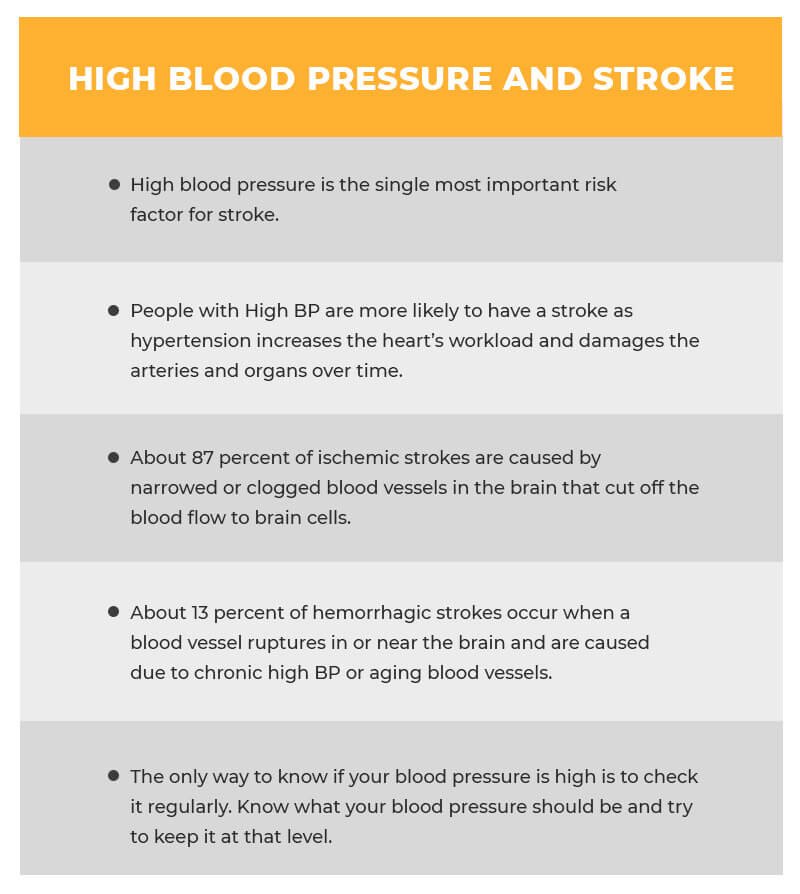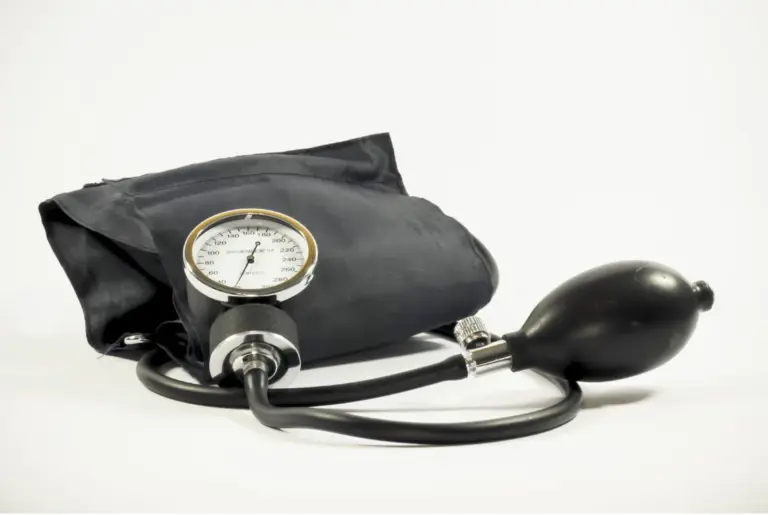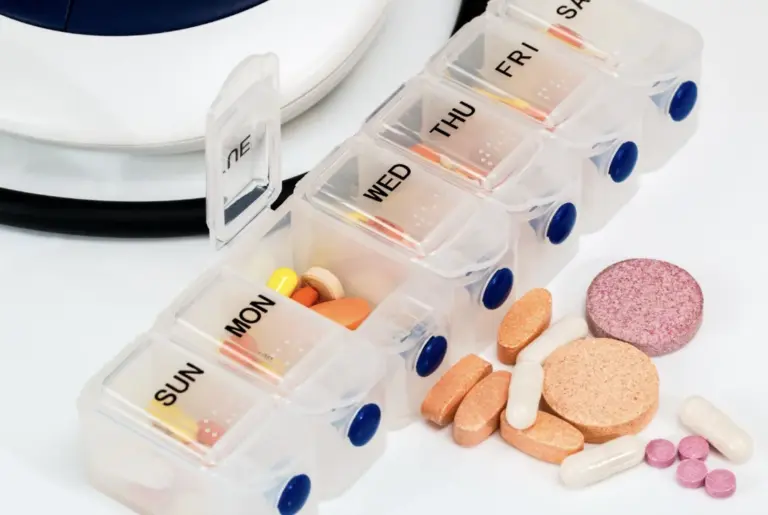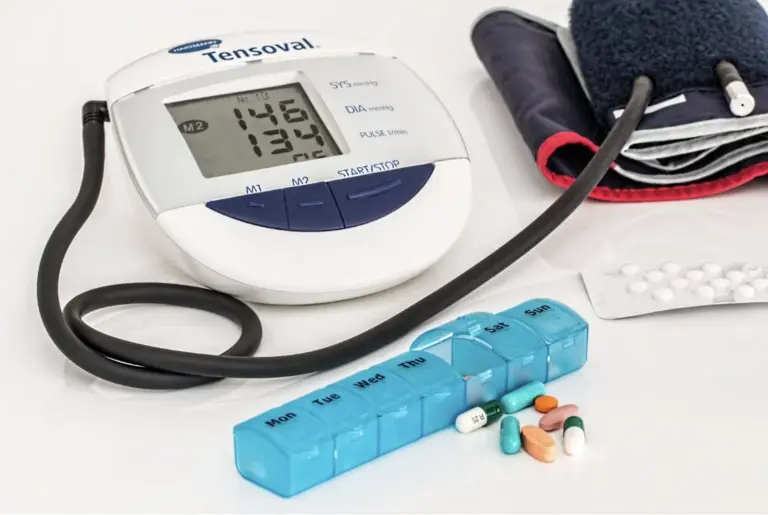Hypertension or high blood pressure has become a chronic medical condition, not just in India, but globally. The repercussions of having uncontrolled high BP are severe with damage to vital organs such as heart, brain, and kidneys. Hypertension is also known to increase the risk of heart attacks and strokes.Unfortunately, the main reason why hypertension goes undetected and untreated is that there are no high blood pressure symptoms upfront as such.
What Is High Blood Pressure?
The blood circulates through the body via a network of blood vessels called the vascular system. The heart acts as a pump, continually pushing blood around the system. This flowing blood exerts pressure on the blood vessel walls and arteries.
When normal blood pressure is measured, two figures are recorded, 120/80 mm Hg. The upper number is called the systolic blood pressure or the measure of the highest pressure in the vascular system, which happens with each contraction of the heart. The lower figure is the diastolic blood pressure which is the pressure in the vascular system between heartbeats.
If the pressure exerted on the arteries by the flowing blood is much higher than the normal range, and when the blood pressure numbers, either systolic or diastolic or both, are too high, that condition is high blood pressure or hypertension.
Blood Pressure Guidelines
In 2017, the American Heart Association, the American College of Cardiology, and nine other health organizations came out with new guidelines and lowered the numbers for the diagnosis of hypertension (high blood pressure) to 130/80 millimeters of mercury (mm Hg) and higher for all adults. The previous guidelines set the threshold at 140/90 mm Hg for people younger than age 65 and 150/80 mm Hg for those aged 65 and older.
The reason to lower the numbers for hypertension and set out new guidelines was to identify people at risk of prehypertension, help them address high BP and make them aware of problems such as heart attack and stroke at an earlier stage.
A study conducted in 2017 of the Systolic Blood Pressure Intervention Trial (SPRINT), researched a sample size of 9000 adults in the age group 50 and above who had a systolic blood pressure of 130 mm Hg or higher and who were at risk of at least one cardiovascular disease. The study was aimed to determine if treating blood pressure to lower the systolic number to 120 mm Hg or less was superior to the standard target of 140 mm Hg or less. The study concluded that targeting a systolic blood pressure of 120 mm Hg reduced the chances of having a heart attack, heart failure or stroke over a three year period. The new guidelines are the same for older and younger people, regardless of age.
The various blood pressure categories as defined by the American Heart Association are:
- Normal – Blood pressure reading of less than 120/80 mm Hg is considered ideal blood pressure or within the normal range. Heart-healthy lifestyle habits such as a balanced diet and getting regular exercise will ensure that the blood pressure remains in the normal range.
- Elevated – Elevated blood pressure is when readings consistently range from 120-129 systolic and less than 80 mm Hg diastolic. If not treated or controlled in time, people with elevated blood pressure are likely to develop high blood pressure in the future.
- Hypertension Stage 1 – Hypertension Stage 1 is when blood pressure consistently ranges from 130-139 systolic or 80-89 mm Hg diastolic. Doctors will recommend an altered and healthier lifestyle to control high BP and may even prescribe blood pressure medication if the patient is at risk of atherosclerotic cardiovascular diseases (ASCVD), such as heart attack or stroke.
- Hypertension Stage 2 – Hypertension Stage 2 is when blood pressure consistently ranges at 140/90 mm Hg or higher. For these blood pressure levels, doctors are likely to prescribe a combination of blood pressure medications and lifestyle changes.
- Hypertensive Crisis – If the blood pressure readings suddenly go beyond 180/120 mm Hg then it is a serious condition and requires immediate medical attention. If, after a 5-minute interval, the blood pressure readings show no change, consult the doctor immediately as it could be a hypertensive crisis. In case the blood pressure is higher than 180/120 mm Hg and there is chest pain, shortness of breath, back pain, numbness/weakness, change in vision or difficulty speaking, do not wait to see if your pressure comes down on its own, get medical help immediately.
How To Lead A Hypertension-Free Life?
Elevated hypertension or mild hypertension can be treated or controlled by making healthy lifestyle changes. These changes can reduce blood pressure as well as the risk of heart attacks and strokes. They include:
For Hypertension Stage 1 And Stage 2 (moderate to severe blood pressure), lifestyle changes need to be combined with blood pressure medication (called anti-hypertensive medicines) to lower blood pressure. Treatment will vary from patient to patient, depending on the diagnosis and other prevailing medical conditions. For some, a single tablet may be enough while some others may require a combination of several medicines.
Even after being diagnosed with high blood pressure, most people with the right lifestyle changes and medications (maybe just a single tablet per day) can lead a normal life. The best way to ensure your high blood pressure stays under control is to regularly get it checked and monitored by a qualified doctor. This will ensure a long, healthy life with a reduced risk of heart attacks and strokes.

Note of caution: This article is for information purposes only. Always consult your doctor before altering any diet plans, medications or in case of any other blood pressure-related troubles.
REFERENCES :
Disclaimer
The information contained in this article is to educate, spread awareness in relation to hypertension and other diseases to the public at large. The contents of this article are created and developed by BPinControl.in through its authors, which has necessary, authorisations, license, approvals, permits etc to allow usage of this articles on The Website. The views and opinions expressed in this article are views, opinions of the respective authors and are independently endorsed by doctors. Although great care has been taken in compiling and checking the information in this article, The Website shall not be responsible, or in any way liable for any errors, omissions or inaccuracies in this article whether arising from negligence or otherwise, or for any consequences arising therefrom. The content of this article is not a substitute for any medical advice. The Website shall not be held responsible or liable for any consequence arising out of reliance on the information provided in the article.




